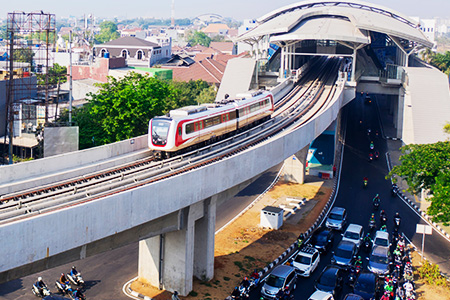Decarbonisation Pathways for Indonesian Sustainable Urban Mobility (DISUM)

This project supports the Government of Indonesia in identifying cost-efficient decarbonisation pathways for passenger transport across Indonesian cities. It analyses future scenarios for urban mobility under different types of infrastructure projects, policy measures and technological developments. The project provides recommendations for the most impactful and effective policy directions for the country based on key mobility indicators like motorisation rates, mode shares, GHG emissions, and cost indicators on investment and operations.
The analysis is conducted using the ITF’s modelling framework. The global urban passenger transport model is tailored to Indonesia to construct a flexible tool for assessing “Avoid-Shift-Improve” policies. The national model enables policy makers to quantify the impact of different measures and manipulate the scale, pace, and interactions among these measures for producing optimal outcomes.
Study outputs include a case-specific modelling tool, a summary of main results and policy briefs presenting scenarios, effective policy levers and their impacts. The results are expected to be publicly presented during an event in Indonesia in December 2023.
The study is conducted in co-operation with the International Bank for Reconstruction and Development (IBRD) of the World Bank Group, the Gadjah Mada University, the Ministry of Transportation and the Ministry of National Development Planning of the Republic of Indonesia.
Sign-up for the ITF Newsletter and Alerts to stay up-to-date with this project